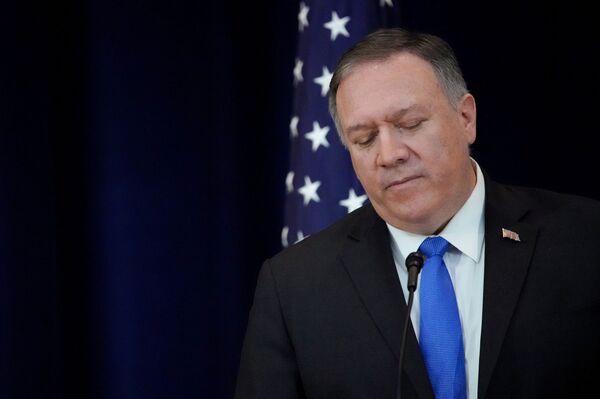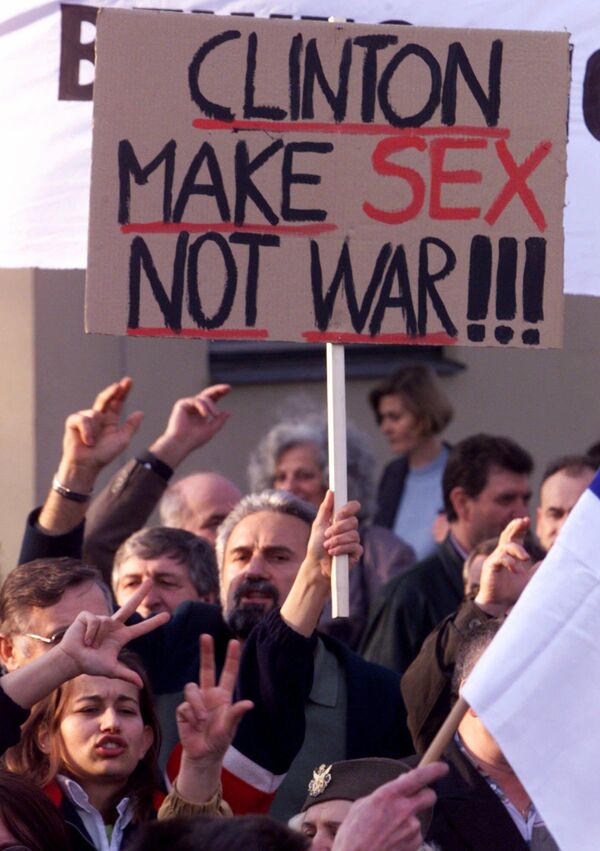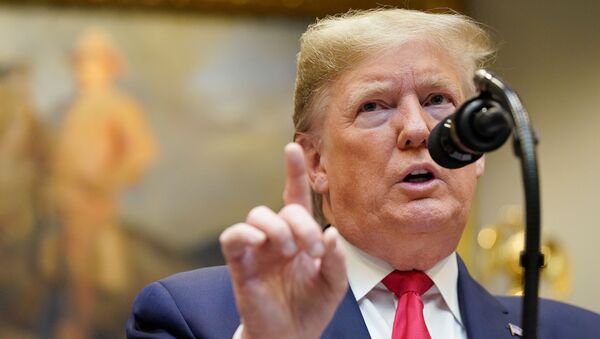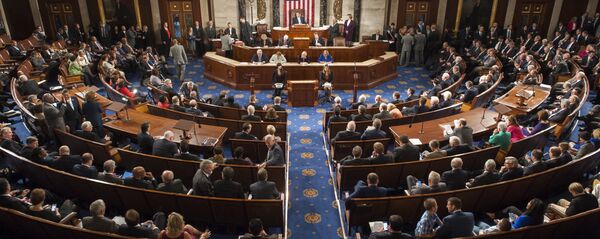The POTUS' unilateral decision to assassinate Iran’s top commander of the Quds Force without consulting with Congress in advance has sparked heated debate among US lawmakers on whether the president abused his powers and should be limited in his ability to take action that could lead to a war with the Islamic Republic.
The American legislature has in the past limited the commander-in-chief's power to make war, but, despite this, the Democrat-dominated House of Representatives passed a resolution, albeit non-binding, seeking to limit Donald Trump's ability to start hostilities against Iran. Here is what the process of launching foreign military operations looks like and how it actually works in the US right now.
Genuine Commander-in-Chief or Just a Lame Duck?
The US Constitution designates the president as "commander-in-chief of the army and navy"; however, it does not explicitly describe the president as having the authority to initiate hostilities on their own (such as conducting an airstrike on a foreign state's territory). Instead, the Constitution names Congress as the body with the power to officially declare a war. It's generally believed by scholars that as commander-in-chief, the POTUS not only has the power to lead the military, but can also do so without a congressional declaration of war.

In fact, the US has engaged in several conflicts without declaring war officially, although presidents have usually received authorisation from Congress to do so in advance, as was the case with the Vietnam War, the Persian Gulf War in 1991, as well as with the War on Terror that started in 2001. However, US lawmakers decided to implement additional checks on presidential powers in the form of the so-called War Powers Resolution after the country was dragged into the disastrous 20-year-long Vietnam War due to President Lyndon Johnson interpreting a congressional resolution to protect US forces as a carte blanche to engage in a full-scale war.
So How Exactly Does the US Currently Start Its Wars?
The War Powers Resolution that was adopted by Congress in 1973 requires US presidents to seek congressional approval, in the form of a declaration of war or statutory authorisation, before deploying troops to fight abroad. Since 1942, the US has actually commenced all of its hostilities without an official declaration of war, relying instead on congressional authorisation or UN Security Council resolutions – another way for the US to engage in military activities abroad.
However, the 1973 resolution did leave one path open for a president to send American troops into hostilities – if US territories, possessions, or its armed forces are attacked (merely a threat is insufficient), then the POTUS can do so without a "go" from the legislative body. But in this scenario, the president is still required to consult with Congress before deploying troops, even if "imminent involvement in hostilities" is expected. Furthermore, the POTUS also needs to explain the reasons for and the duration of the deployment of US forces into hostilities within 48 hours.
How Many of These Rules Has Trump Really Followed?
When it comes to the recent assassination of Iranian General Soleimani, Trump, for starters, never notified Congress in advance of his plan to conduct the airstrike on 3 January. Additionally, the basis for the military operation, which had the potential to drag the US into a war with Iran, remains questionable.

Trump claims that Soleimani was planning attacks against US citizens in the near future, but later, Secretary of State Mike Pompeo confessed that Washington knew neither the date nor the place of the allegedly planned attack. Even if the US had evidence suggesting that an attack was possible, technically Trump still didn't have the right to order the airstrike without a nod from Congress, as the War Powers Resolution only mentions an actual "attack" on US interests as a prerequisite for such a move.
Was Trump the First President to Ignore the War Powers Resolution?
While it does look like Trump did interpret his authority under the War Powers Resolution rather loosely, to say the least, he was not the first president to ignore the law's provisions, to the discontent of Congress.
One major instance when the resolution was violated was President Bill Clinton's use of American forces in the bombing of Yugoslavia during the Kosovo War in 1999. Back then, US troops were conducting operations in a foreign country without authorisation from either Congress or the UN Security Council and without a clear threat to American interests (let alone any "attack" on them). In addition, this deployment lasted for 78 days, or 18 days longer than the War Powers Resolution allows for without congressional approval – which had not been granted.

The War Powers Resolution was also violated by Trump's predecessor, Barack Obama, who directed the US military to join the campaign against Libyan air defences in 2011. While the operation was conducted under the pretext of implementing a UN Security Council-approved no-fly zone over the country, it had still not been backed by American lawmakers, some of whom expressed concern that the POTUS was abusing his status as commander-in-chief.
Obama justified his actions at the time by calling the operation necessary to "prevent a humanitarian catastrophe and address the threat" allegedly posed to "international peace and security" by the Libyan Civil War, which had largely been fuelled by Western countries themselves. He also argued that the US operations in the conflict would be "limited in their nature, duration, and scope", even though Washington actually contributed more than any other of its NATO partners to the intervention in the country.
But despite ignoring and violating the existing laws regulating when the US can enter into an armed conflict, no president has so far been directly punished for doing so, even if members of Congress have expressed their discontent. On the other hand, Trump has faced major opposition in the US Congress throughout his presidency and was recently impeached, meaning he could face something more serious than just grumbling from lawmakers. Although Democrats only control the lower chamber of Congress, Trump's actions in Iraq have made some Republican senators consider supporting their opponents' recent initiative to limit the POTUS' ability to engage in hostilities with Iran.




